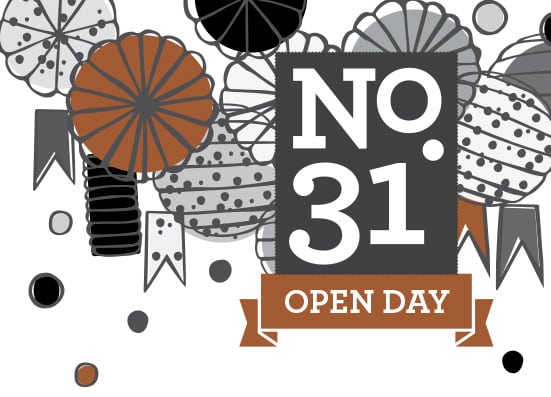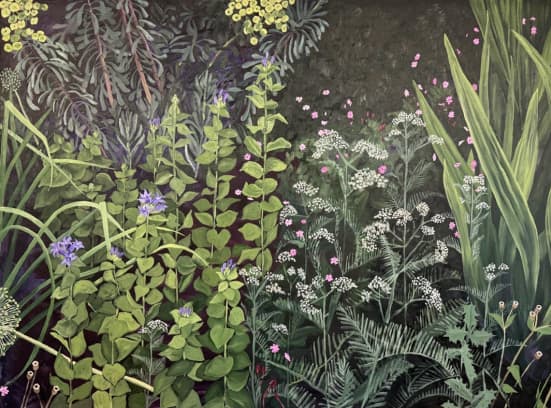A new festival, IF Oxford, is coming to town next month (12-22 October), designed for inquisitive minds of all ages taking a broad approach to science and society.
The festival offers a refreshing approach to ideas about humanity and the world at large, alongside cutting-edge thinking from world-leading brains. With hundreds of events, there are surprising science ideas and innovative insights for everyone, whatever their interest.
Have you ever thought, for example, about the maths behind the perfect penalty kick? Or the best place in the world to attempt a world record? Maths – but not as you know it – has all of the answers, according to Oxford University mathematician Tom Crawford, whose ‘Naked Maths’ strips back important equations in maths so everyone can understand them. When not misbehaving with numbers, Tom can be found playing football, snowboarding and pretending he’s a rockstar. He currently has six maths-themed tattoos, including the first 100 digits of Euler’s number – a useful constant rather like its better-known cousin Pi, that underpins curves, calculus and wave theory. And where would we be without a Mexican wave after that winning goal? (And for those post-win celebrations, Tom also offers an insight into how we can make better wine.).
Of course, however good your maths, it pays to eat the right things if you’re aiming for peak performance, and nutritionist Susan Jebb is leading a discussion on the relationship between protein, masculinity and sporting performance – perfect food-for-thought for gym bunnies and bodybuilders of all shapes and sizes.
Gaining a competitive advantage
There’s moral outrage when a sporting celebrity is discovered to have been using the performance enhancing drugs banned in most sports, but taking dietary supplements or stocking up on carbohydrates in the final pre-race phrase also contribute to health and performance, so when does a method of gaining a competitive advantage over the rest of the field become unreasonable? If the point of sport is to test the natural limits of human nature, is it when a substance is synthetic so that its consumption is a truly artificial enhancement? But erythropoietin, banned in the early nineties for example, is a hormone produced by the kidney which promotes the formation of red blood cells by the bone marrow, giving the same result as training at altitude. Is a manufactured substance used inside the body so very different from using the latest technology to aid speed in a pool or on a track? There’s also the chance to see and discuss a short film on the science of doping and the effects of enhancement drugs on the human body.
Crystallography
If you’d prefer a big bar of chocolate to a race-ready beach-body, sample what crystallography has done for the world through a journey from salt to chocolate – which surprisingly is a crystal too – and then beyond, with new ways to understand health, disease and the discovery and development of new drugs.
The method of x-ray crystallography is used to obtain molecular structures from crystals, which can be too small to be visible with the naked eye, or ten metres long like the giant selenite crystals found in a magical cave in Chihuahua State, Mexico. Diamonds are also crystals, and not only are they wonderful bling, but they have everyday uses in modern life, from computing to removing environmental pollutants from water.
Fancy a tipple?
For those who fancy a tipple, IF Oxford offers the chance to explore the science of gin at The Oxford Artisan Distillery, where they’ll talk you through heritage grains and local botanics, the distilling process and the engineering required to produce their gin, absinthe, vodka and rye whiskey. The process from the harvesting grain to the taste on the tongue takes place in a towering copper machine with a steampunk character, designed by industrial coppersmiths with a background in railway engineering and includes the original porthole salvaged from a ship decommissioned in India.
TOAD is the only distillery in the world using ancient populations of heritage grain to create spirits - a hardy biodiverse crop developed by archaeo-botanist John Letts, a leading voice in the resurgence of ancient yet sustainable farming methods. It was a chance event, his being gifted a shoebox full of wheat sourced from the bottom layers of an old thatched roof, that led John to realise that in ancient times as many as 250 different types of wheat grew in any one field, achieving yields matching those of today’s organic farms.
Time Travel
Going back in time is a great place to dig up new ideas, and one of the events in the festival celebrates science in the graveyard. You may think graveyards are where horrors lurk, but cemeteries are actually geological treasure troves, and in four different Oxford graveyards (in separate tours) you can uncover the wide range of rock types used for gravestones and the changes in choice of stone over time which offer insights into social history. From local stone for the earliest graves, you’ll find igneous rocks from Scotland and Scandinavia, Italian marble and more unexpected stone. Look out for ripples and dune structures in sandstone, and around the stones, wonderful refuges for insects, wildlife, lichens and flowering plants.
Elsewhere throughout the festival, topics range from augmented humanity with Professor Sir Nigel Shadbolt, to the potential for Big Data analytics, quantum technologies and cyber security whilst the choreography of galaxies, solar physics and what the sun means to the Earth is staged in contemporary dance. Developed in partnership with the scientists from STFC RAL Space at Rutherford Appleton Laboratory, the show ‘8 Minutes’ takes you on a journey from the point of view of the speed of light, and are eight minutes apart, during which you can watch the contortions of the planets and sunbeams as they travel through space with an impressive audio-visual backdrop. Festival visitors are also invited to watch dancing as a metaphor for mental health, but it is the brain that dances for Emily Cross, the award-winning neuroscience professor from Glasgow, who will talk about getting in the 'neural groove'.
There’s a chance to enjoy an alchemy of acts in a science cabaret or science comedy in a pub, to immerse yourself in art inspired by the wonders of the world or to watch stunning contemporary dance as a symphony of sunbeams saturates the Oxford Playhouse’s stage. After all, for the curious, all the world’s a stage, and all the molecules and particles are merely players.








